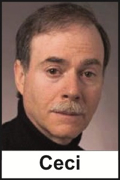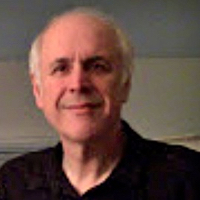Rascals case in brief
In the beginning, in 1989, more than 90 children at the Little Rascals Day Care Center in Edenton, North Carolina, accused a total of 20 adults with 429 instances of sexual abuse over a three-year period. It may have all begun with one parent’s complaint about punishment given her child.
Among the alleged perpetrators: the sheriff and mayor. But prosecutors would charge only Robin Byrum, Darlene Harris, Elizabeth “Betsy” Kelly, Robert “Bob” Kelly, Willard Scott Privott, Shelley Stone and Dawn Wilson – the Edenton 7.
Along with sodomy and beatings, allegations included a baby killed with a handgun, a child being hung upside down from a tree and being set on fire and countless other fantastic incidents involving spaceships, hot air balloons, pirate ships and trained sharks.
By the time prosecutors dropped the last charges in 1997, Little Rascals had become North Carolina’s longest and most costly criminal trial. Prosecutors kept defendants jailed in hopes at least one would turn against their supposed co-conspirators. Remarkably, none did. Another shameful record: Five defendants had to wait longer to face their accusers in court than anyone else in North Carolina history.
Between 1991 and 1997, Ofra Bikel produced three extraordinary episodes on the Little Rascals case for the PBS series “Frontline.” Although “Innocence Lost” did not deter prosecutors, it exposed their tactics and fostered nationwide skepticism and dismay.
With each passing year, the absurdity of the Little Rascals charges has become more obvious. But no admission of error has ever come from prosecutors, police, interviewers or parents. This site is devoted to the issues raised by this case.
On Facebook
Click for earlier Facebook posts archived on this site
Click to go to
Today’s random selection from the Little Rascals Day Care archives….
Click for earlier Facebook posts archived on this site
Click to go to
Today’s random selection from the Little Rascals Day Care archives….
27 million chances to provoke mass hysteria
Sept. 26, 2012
“The (Little Rascals) kids stories have unerringly followed the ritual abuse plot, progressing lately to tales of witnessing babies slaughtered. Perhaps not coincidentally, their most bizarre allegations began surfacing around the time that 27 million viewers watched ‘Do You Know the Muffin Man?’ a (Lifetime TV) movie that rehashed details from several ritual abuse cases, but included the wholly fictional climax of parents discovering day-care teachers worshipping the devil amidst piles of kiddie porn.”
– From “The Ritual Sex Abuse Hoax” by Debbie Nathan (Village Voice, January 12, 1990)
“Muffin Man” aired October 22, 1989 – simultaneous with not only the ongoing arrests of Little Rascals defendants but also the satanic-baby-kidnap rumor sweeping East North Carolina.
“These stories keep cropping up all over the country,” observes the “Muffin Man” prosecutor. “With this many Satan ritual abuse cases, there has got to be something out there.” (In the Little Rascals case, this “Where there’s smoke…” rationale was most notoriously put forth by UNC Chapel Hill psychologist Mark Everson.)
In Bucks County, Pa., however, District Attorney Alan Rubenstein couldn’t help noticing that complaints about ritual abuse at Breezy Point Day School went from a trickle to a torrent the day after “Muffin Man” aired. Unlike so many other prosecutors in Edenton and elsewhere, Rubenstein saw through the claims and crushingly debunked them.
Leading questions, not spontaneity, marked interviews
 May 4, 2012
May 4, 2012
“Written reports that contain statements such as ‘The child said that Mr. Bob told them secrets’ are meaningless.
“We need to know whether this was a spontaneous remark, whether this was prompted by an open-ended question (e.g., “What did Mr. Bob tell you?”), or whether this is merely the interviewer’s memory of the gist of a conversation in which the interviewer asked, ‘Did Mr. Bob ask you to keep secrets?’ and the child reluctantly may have replied, ‘Yes.’
“Some summaries of the interviews are written in such a way as to make one believe that children made spontaneous and detailed statements about sexual abuse. However in the few instances where we have transcripts of other interviews, it is clear that the child only responded ‘yes’ or ‘no’ to a barrage of leading questions.”
– From “Jeopardy in the Courtroom: A Scientific Analysis of Children’s
Testimony” by Stephen J. Ceci and Maggie Bruck (1995)
Children ‘defend veracity of implanted memories’
Sept. 27, 2013
“The children are the big victims (in unfounded sex abuse cases) and are sacrificed…. Can you imagine being a child and being interrogated, being sent to the gynecologist, seeing your mother cry, seeing your father getting into fights, or a person you really like being sent to prison? You actually end up believing that this happened to you, that’s what we called ‘added memory.’
“Those children grow up with the same memories as those who actually experienced child abuse. I found it disturbing and I felt that it had to be told.”
– From an interview with Thomas Vinterberg, director of “The Hunt,” at filmophelia.com (July 11, 2013)
Vinterberg’s sympathy for the children in such cases is well placed – but do they in fact “grow up with the same memories as those who actually experienced child abuse”?
Although reliable follow-up is scarce, Debra Poole, professor of psychology at Central Michigan University, had this to say about the unfounded claims of child witnesses in the Fells Acres (Amirault) case:
“It has nothing to do with lying and everything to do with the implanting of false memories…. Studies have shown that children will vehemently defend the veracity of implanted memories. They recall reporting them, and those reports produce mental images of the events that these individuals cannot distinguish from their real experiences. But the kids are not responsible for that. The interviews are.”
The Little Rascals child witness I talked with insists she continues to “remember vividly what happened.”
APSAC’s child-protection record doesn’t inspire confidence

youtube.com
Richard Wexler
Sept. 28, 2016
“The American Professional Society on the Abuse of Children [is] presenting a ‘special issue’ of one of its publications devoted to [Differential response] – or rather, devoted to bashing DR….
“APSAC’s track record for getting child welfare issues right is less than distinguished. As Debbie Nathan and Michael Snedeker explain in Satan’s Silence, APSAC was formed in the 1980s largely by well-meaning ‘professionals’ who promoted claims of a supposed epidemic of mass molestation and satanic ritual abuse in day care centers.
“ ‘From its inception,’ Nathan and Snedeker write, ‘APSAC’s leadership roster was a veritable directory of ritual-abuse architects.’ Kee MacFarlane, who led the questioning of children in the notorious McMartin Preschool case, served on APSAC’s board – and received the group’s Outstanding Professional award – a decade after McMartin. And in 1997, three years after writing an article promoting the idea that there really were secret tunnels under the McMartin Preschool, Roland Summit, another former board member, received the group’s Lifetime Achievement award.”
– From “Opposition to Differential Response Dealt Heavy Blow” by Richard Wexler in the Chronicle of Social Change (Sept. 24)
Differential response – a less adversarial, more collaborative approach to reports of child abuse and neglect – isn’t a subject I’m well-informed on. But Wexler’s characterization of APSAC’s culpability for the day-care panic can’t be disputed.
Next: Has APSAC recanted about ‘satanic ritual abuse’?
![]()











0 CommentsComment on Facebook